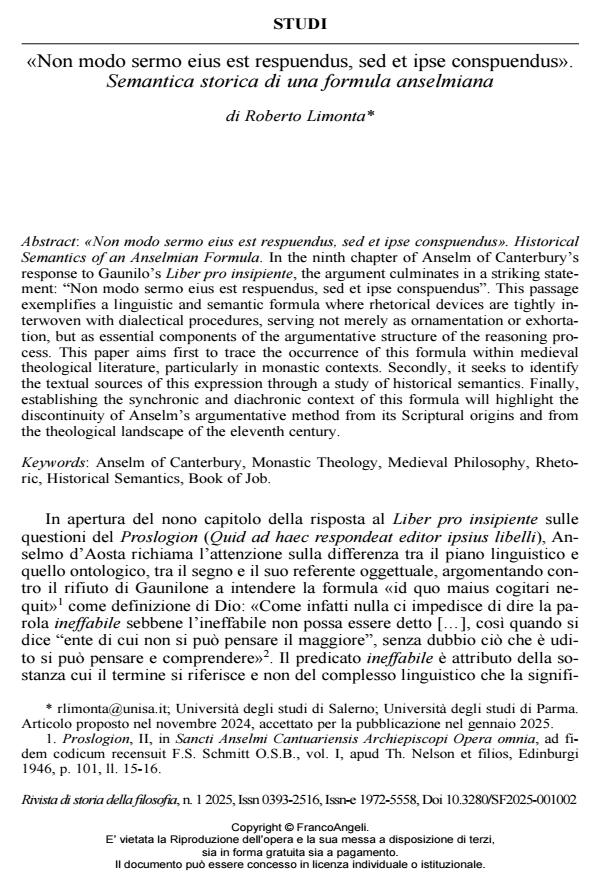«Non modo sermo eius est respuendus, sed et ipse conspuendus». Historical Semantics of an Anselmian Formula.
Journal title RIVISTA DI STORIA DELLA FILOSOFIA
Author/s Roberto Limonta
Publishing Year 2025 Issue 2025/1
Language Italian Pages 18 P. 3-20 File size 236 KB
DOI 10.3280/SF2025-001002
DOI is like a bar code for intellectual property: to have more infomation
click here
Below, you can see the article first page
If you want to buy this article in PDF format, you can do it, following the instructions to buy download credits

FrancoAngeli is member of Publishers International Linking Association, Inc (PILA), a not-for-profit association which run the CrossRef service enabling links to and from online scholarly content.
In the ninth chapter of Anselm of Canterbury’s response to Gaunilo’s Liber pro insipiente, the argument culminates in a striking statement: “Non modo sermo eius est respuendus, sed et ipse conspuendus”. This passage exemplifies a linguistic and semantic formula where rhetorical devices are tightly interwoven with dialectical procedures, serving not merely as ornamentation or exhortation, but as essential components of the argumentative structure of the reasoning process. This paper aims first to trace the occurrence of this formula within medieval theological literature, particularly in monastic contexts. Secondly, it seeks to identify the textual sources of this expression through a study of historical semantics. Finally, establishing the synchronic and diachronic context of this formula will highlight the discontinuity of Anselm’s argumentative method from its Scriptural origins and from the theological landscape of the eleventh century.
Keywords: Anselm of Canterbury, Monastic Theology, Medieval Philosophy, Rhetoric, Historical Semantics, Book of Job.
Roberto Limonta, «Non modo sermo eius est respuendus, sed et ipse conspuendus». Semantica storica di una formula anselmiana in "RIVISTA DI STORIA DELLA FILOSOFIA" 1/2025, pp 3-20, DOI: 10.3280/SF2025-001002